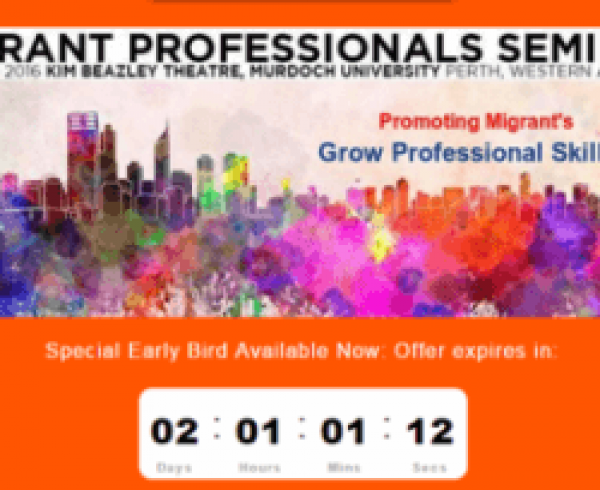Parent Visa Waiting Periods | Australia
Last month, Interstaff’s Managing Director, Sheila Woods was interviewed on ABC Radio Perth on a critical issue that affects many migrants in Australia – family reunification.
During the interview, Sheila explained the impact that lengthy processing times have on migrants and their families – including the concerning blowout in government processing for Parent Visas, which has resulted in a painstaking 50 year wait in some cases.
Unfortunately, the waiting game not only causes emotional distress but also significant challenges for those who want to reunite with loved ones while living and working here.
It’s disheartening to witness the uncertainty faced by families who want to reunite with their parents – whose presence can bring immense joy, not to mention invaluable support.
Unfortunately, demand for Parent Visas has been largely unmet in the capped number of places each year, and this has resulted in a large and growing queue of applications.
From 2010 to 2022, Parent Visa applications increased from about 35,000 to 120,000, with some visa applicants facing wait times of 30 to 50 years.
While it’s important to acknowledge the economic reasons to cap Parent Visa placements each year, Australia also needs to explore practical solutions to the staggering waiting times, and the impact family reunification has on Australia’s attractiveness as a destination for skilled migrants – particularly at a time of skills shortages.
Here’s a summary of areas of possible reform that may be explored by the Government.
3 Areas of Parent Visa Reform Identified in Australia’s Migration Review
According to Australia’s recent Migration Review, the Government may explore reforms to Parent Visas, although should changes be agreed, it is likely that they will be implemented after finalising skilled migration policies.
Here are the three areas of Parent Visa reform identified in the Migration Review that could be explored by the Government:
- A visa lottery approach for Parent Visas, similar to Canada and New Zealand
-
- This would involve an online registration form and relatively low fee
- Entrants would be randomly selected and invited to apply for the Parent Visa
- The number of entrants selected would equate to the number of placements available each year, resulting in a minimal backlog and waiting period
- The sponsor would be largely responsible for post-arrival support
-
- Improving the existing Temporary Parent Visa option
-
- This would be improved by reducing current visa application costs
- The sponsor would need to meet health costs during the period of stay
- The visa period would be changed from a 3 to 5 year stay to shorter periods – for example, 12 months within an 18 month period, while allowing the visa to be used multiple times over 10 years. This arrangement could possibly allow parents to retain their home and connections in their country of citizenship.
-
- Removing access to Permanent Parent Visas
-
- The Migration Review suggested that the Government should consider if simultaneously removing Permanent Parent Visas and improving access to the temporary Parent Visa option will provide a fairer system than continuing to provide permanent migration to only a very small proportion of those seeking it.
-
Importantly, while a solution is certainly needed, the Government would also need to consider how any reforms would impact existing applicants.
Interstaff Migration Agents | Parent Visa Waiting Periods
For more information about Parent Visas, you may wish to read our previous article, which includes a Visa Tool below that compares costs and waiting periods.
As always, if you require professional visa or migration advice, we encourage you to call Interstaff’s Migration Agents on 08 9221 3388 (Perth), 02 7200 2567 (Sydney), 03 8319 0902 (Melbourne) or +61 8 9221 3388 (International) or get in touch here if you have any questions.
You can also connect with us on LinkedIn and Facebook to stay updated.
Source:
Interstaff’s Registered Migration Agents
The Department of Home Affairs
The Department of Home Affairs Migration Review
The content of this article is intended to provide a general guide to the subject matter. Specialist advice should be sought about your specific circumstances.






